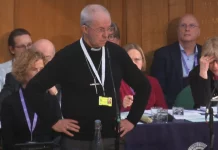The Internet is all a-burbling with talk of impeachment. Much of what I have read is ill-informed, or indeed uninformed, nonsense. Your Curmudgeon approaches the subject as one trained in constitutional law, who learned the subject from the likes of Paul A. Freund and Archibald Cox. That was more than fifty years ago, and since then my passion for the subject has but grown, with each successive year. In this post, I will try my best to sort out sense from nonsense.
As any good legal scholar knows, questions about the Constitution always start with its text. Let me quote the last clause of Article I, Section 4 of that foundational document:
Judgment in Cases of Impeachment shall not extend further than to removal from Office, and disqualification to hold and enjoy any Office of honor, Trust or Profit under the United States: but the Party convicted shall nevertheless be liable and subject to Indictment, Trial, Judgment and Punishment, according to Law.
Notice the conjunction of the two operative phrases: “removal from Office, and disqualification . . .”. The word “or” is absent, meaning the two phrases go together. This is basic English, and basic logic.
That logic does not stop the ill-informed, including many professors of law, from claiming that Congress may still, even after the term of the impeached officeholder has expired, enter a judgment of impeachment that encompasses disqualification without removal from office (because — duh — the officeholder is no longer capable of being removed). See, for example, this post, this article, and this article. And this professor even claims that the whole deed could be accomplished in a single day.
Never mind that it never has been done that way, and never mind that there is another provision that forbids the government from depriving anyone of property, including the right to hold an elected office, without due process of law — which means by a regular trial that includes all of the customary protections such as the right to call witnesses in defense, and to confront the witnesses testifying against you, among other rights. If “due process” is duly observed, there is no way that citation for impeachment, trial and conviction could all take place in just one day. But that realization does not deter the biased pundits from pontificating, or discourage the even more biased media from publicizing the pundits’ ill-informed views.
The same pundits manage to pat themselves on the back by celebrating (even if somewhat modestly) how the recently released House report on impeachment quotes and cites them in support of its admittedly partisan conclusion.
And, as a sort of pièce de resistance, one professor cites this law review article as “probably the closest thing we have to an authoritative academic analysis of the issue.” Let me save you the effort: I have downloaded the entire 68-page article at that link, and have read it all the way through. Its entire treatment of disqualification as a consequence of “impeachment after the expiration of office” appears just before the end, at pages 63-64.
It is only as an introduction to that section that the article candidly confesses:
The foregoing has all been directed at the question of whether late impeachment is allowed. It is time to confront a more difficult question for proponents of late impeachment: What is the point?
And only then does the article go on to discuss the subject of disqualification, apart from the removal from office. Yet it still can cite no precedent whatsoever for a judgment of disqualification that came after an officeholder’s term had expired of its own accord, i.e., in the absence of a preceding vote to remove that official from office. (And even then, it can cite just two cases — both sitting federal judges — in which the Senate voted both for impeachment and disqualification — see fn. 524, on p. 63.) In other words, the very thing that the elites and their media cohorts are trumpeting should now happen has never before happened in our nation’s history — and certainly not in the case of a former President.
Of course, most of my readers will know that not a single sitting President has ever before been charged in articles passed by the House and convicted (impeached) by the Senate, let alone disqualified from future office. Does the reader begin to grasp why the clamoring mob (including the bandwagon in Congress and their ready-to-testify legal experts) are so out of bounds on this most consequential subject? Has their visceral reaction to Donald Trump indeed driven almost all the published pundits to abandon all logic, and the actual language of our Constitution?
I draw no conclusion, but I certainly have my doubts about the degree to which the rest of us should take such people at face value. And so, I should add, does this lay commenter.
What is more, I consider myself on even firmer ground when I bring up a consideration that, as far as I have been able to discover among all the posts on this touchy subject, has not yet been taken into account. For (lest we forget, due to the dimness of our ancient Anglican history) the Constitution also contains this succinct restriction upon the powers of Congress, in Art. I, Section 9, clause 3:
No Bill of Attainder or ex post facto Law shall be passed.
The same restriction was applied to the individual States in Art. I, Section 10, clause 1, so the Founders must have considered this restriction as essential to our republican form of government. So what exactly is a “Bill of Attainder”?
We have to go back to English law (and Blackstone’s Commentaries) to understand the history of this term, and the abominable practice it embodied. Parliament claimed the power to pass a bill that simply sentenced a subject of the Crown to death, with or without any kind of trial or evidentiary proceedings having taken place — that was the traditional “Bill of Attainder”, taken from the fact that the person so condemned was regarded as “attainted” by an extraordinary crime committed against the Crown.
Over time, the abuses of this power became abhorrent to those brought up in the tradition of the Magna Carta, and our Founders were no exception: hence the restrictions upon such Bills in our Constitution.
And over the years since the adoption of our Constitution, the courts have had occasion to apply and interpret its language forbidding such acts by the national or State legislatures. The best and simplest online explication of what our courts have held in this regard may well be this one, which quotes the language of actual cases (I have omitted the footnote references, but you may see them at the link):
“Bills of attainder . . . are such special acts of the legislature, as inflict capital punishments upon persons supposed to be guilty of high offences, such as treason and felony, without any conviction in the ordinary course of judicial proceedings. If an act inflicts a milder degree of punishment than death, it is called a bill of pains and penalties. . . . In such cases, the legislature assumes judicial magistracy, pronouncing upon the guilt of the party without any of the common forms and guards of trial, and satisfying itself with proofs, when such proofs are within its reach, whether they are conformable to the rules of evidence, or not. In short, in all such cases, the legislature exercises the highest power of sovereignty, and what may be properly deemed an irresponsible despotic discretion, being governed solely by what it deems political necessity or expediency, and too often under the influence of unreasonable fears, or unfounded suspicions.” The phrase “bill of attainder,” as used in this clause and in clause 1 of § 10, applies to bills of pains and penalties as well as to the traditional bills of attainder.
So while not exactly condemning President Trump to execution (though there have been voices clamoring to that effect), any judgment of disqualification entered by Congress after his term had expired according to law would, I submit, be just such a forbidden Bill of Attainder (or, more technically, a “Bill of Pains and Penalties”). Its object admittedly would not be to remove him from the office he had already left when his term expired by law, but simply to punish him after the fact by depriving him permanently of the right of any qualified American citizen to be elected to an office under the United States.
It would be directed, as all such Bills are, against a single individual, and would be passed in the absence of proceedings conducted according to the laws applicable to trials in the courts of the United States. The Constitution gives the Senate the sole power to try cases of impeachment, and prescribes no rules for doing so — other than that the Senators must be “on oath”, and that the Chief Justice of the United States must “preside” when a sitting President is being tried. Please note the specific language once more: the Constitution says when “the President of the United States is tried” — not “the former President,” or “ex-President”.
I do not present this as a definitive argument, but only as a check on the rush to judgment which appears to be ubiquitous in our national media, as well as among those whom the media selectively choose to quote.
In sum: there is no logic or language in the Constitution that authorizes a former President to be tried for impeachment, let alone convicted and judged, with or without an accompanying sentence of disqualification.
If we indeed are to remain a government of laws, and not descend to rule by the passions of the moment, we have to adhere to the plain text of our entire Constitution. To argue by taking snippets from it out of context, in order to say (in effect) that the end justifies the means, is to unmoor ourselves from the rule of law — which in the first instance comes from the sense of the Constitution itself.
[UPDATE: In light of the House’s resolution of today, I need to register a strong protest against the misuse of the word “impeachment”. The headlines, for example, are all screaming that “Trump is the first President to have been impeached twice”. To which I reply: “No, he has not — he has not even been impeached once.”
To be “impeached”, in the legal sense of the term, is to be convicted by the Senate, after a trial, upon articles of impeachment lodged with the Senate by the House of Representatives. The analogy is to an indictment by a grand jury: that grand jury can indict an official, but he is not convicted on the grand jury’s charges until there has been a full trial, with a verdict of “guilty as charged.” If that official were found “not guilty” of the charges, why would there ever be any note of triumph in claiming that the official had been “indicted”? The outcome is that he was found not guilty of the charges in the indictment, and that is what counts in the end.
So all that the House has accomplished today is not a “second impeachment” of President Trump, but only the bringing of a second charge to the Senate that hypothetically could, but which in reality will not (because Trump has only a week left in office), result in his trial and impeachment — sc. removal — from the office of President. Instead, he will be long gone from office before the House can even transmit its charges to a Senate that is actually in session (starting January 19 — one day before the expiration of President Trump’s term).
So — don’t fall victim to the media’s manipulation of our language. “Impeachment” means the same as “removal from office after a trial by the Senate upon articles brought and prosecuted by the House, resulting in a judgment of impeachment.” The House alone, in short, has no power to “impeach” the President (or any other official) by itself. All it can do is prefer charges against an official, which — if true as found after a full trial with the whole Senate sitting as a jury — would justify his or her removal from office, as having committed “Treason, Bribery, or other high Crimes and Misdemeanors” as required by Art. II, Section 4 of the Constitution.
In sum, President Trump has not been “impeached” twice. In fact, he has not even been impeached once.]










